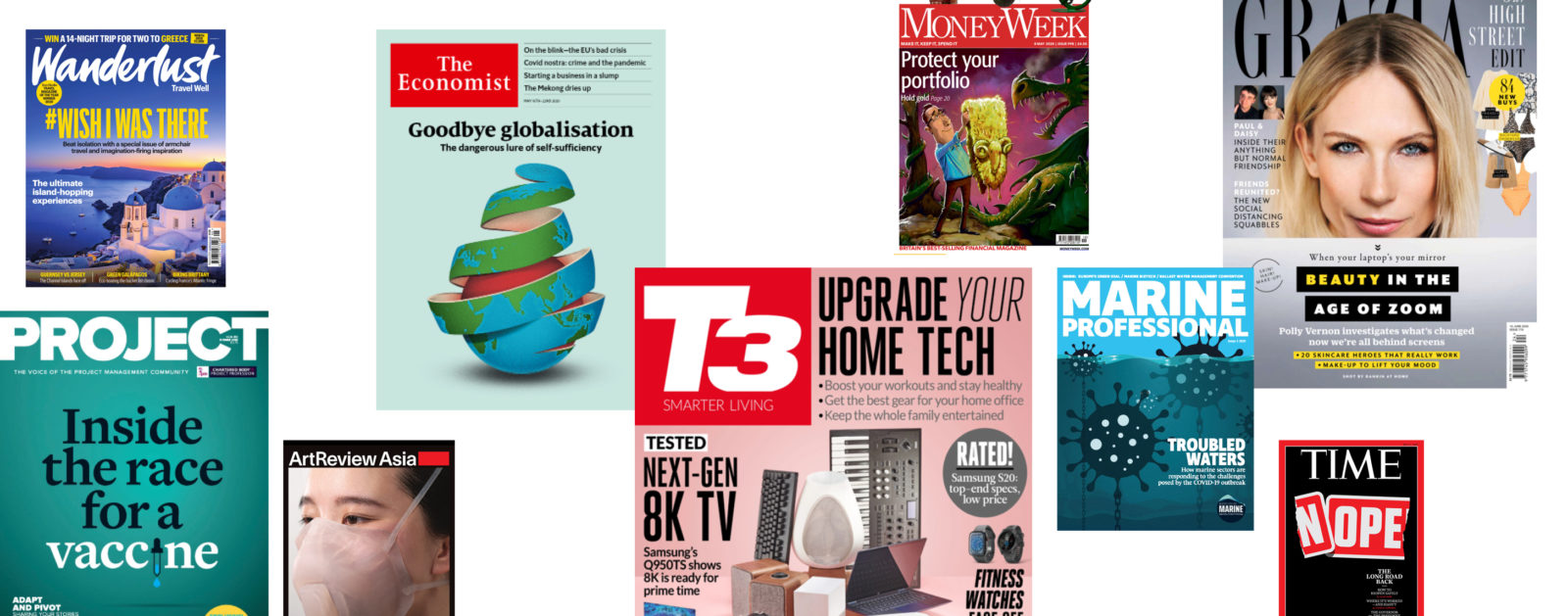Communicating clearly and safely has never been more important. So what have industry experts, analysts, authors and community leaders learned from the coronavirus pandemic?
By Ryan Herman for CIPR Influence
1. The disease is not a “great leveller”
Emily Maitlis gave us one of the TV moments of this crisis when she delivered this powerful Newsnight monologue:
“The language around Covid-19 has sometimes felt trite and misleading. You do not survive the illness through fortitude and strength of character. And the disease is not a great leveller, the consequence of which being that everyone – rich or poor – will suffer the same.
“This is a myth which needs debunking. Those on the front line right now – bus drivers and shelf stackers, nurses, care-home workers, hospital staff and shopkeepers – are disproportionately the lowest-paid members of our workforce. They are more likely to catch the disease because they are more exposed.”
2. Staying in is the new presenteeism
Despite concerns about security, Zoom has rapidly become ubiquitous. One side effect of the Zoom Boom, though, is a worrying form of presenteeism, according to Bruce Daisley, a former VP at Twitter and author of The Joy of Work.
“Many people I’ve spoken to are now doing around 20 hours of Zoom conferences a week. That amount of forced concentration is a form of presenteeism,” he says. “It’s so difficult to measure somebody’s productivity or output now, so we often take their presence on something like Zoom as a substitute.”
As we all adjust to working from home on a longer-term basis, managers will need to think carefully about how they communicate with employees, making sure they’re both effective and sensitive in how they reach out.
3. It is possible to have a “good crisis”
A crisis like this is an opportunity for politicians and business leaders alike to roll up their sleeves and get to work… often in pursuit of a bit of good publicity for themselves.
For example, in April, a (thoroughly unscientific) survey of subscribers to the Red Box email newsletter from The Timesdeemed chancellor Rishi Sunak to have been the most impressive cabinet minister when it came to deputising for the prime minister during his absence, winning 68% of the vote. Meanwhile, Home Secretary Priti Patel was left languishing on just 1%.
4. There is such a thing as TMI
A survey of 2,000 Brits carried out by Unhooked Communications at the end of March revealed that nearly a third felt they had received either “too much” or “far too much” content related to coronavirus from businesses. As many as 23% said they felt “overwhelmed” by that volume of communication.
As Unhooked’s Claire Gamble explained: “All too often brands tend to wade into trending conversations and breaking news to share their thoughts. It can come across as opportunistic if it’s not approached in the right way.”
5. Managing the message matters
At a time like this, clear messaging around the essentials is, well, essential. Sven Hughes of Enigma Strategic Communications is a former a British Army reservist who specialised in ‘psy-ops’. He recalls his time working for the International Security Assistance Force (ISAF) in Afghanistan and being given just 24 hours to evacuate a village.
“ISAF prepared good messages that we thought the people wanted to hear, but really all they wanted to know was ‘Where can I get clean running water and medical help?’ It always comes down to listening to what your audience wants and using that as your starting point,” he explains.
6. Kindness is king
“Whenever you’re writing a comms plan, you’re going to think strategically and act tactically. But maybe now there’s a third strand where you also act spiritually,” says Dominic McCarthy, a senior partner at ANM.
“Some of that was coming through before the crisis, particularly in the thinking around sustainability,” he explains. “For when we come out of this, you’ll need to keep your finger on the pulse for what the mood is and how brand values may have changed.”
7. Good and bad leadership sound very different
For Sven Hughes, this crisis has revealed two very different kinds of communicators. “In Brazil, Jair Bolsonaro has been nothing short of cretinous, whereas in New Zealand Jacinda Ardern treats the audience with respect, and if you do that from the start they will come with you on that journey.”
“Bolsonaro’s ego has got in the way,” Hughes adds. “He’s letting himself broadcast what he thinks will be self-aggrandising messages, rather than starting with what the audience needs to hear. Ardern has been much more elegant, empathetic and effective.”
Likewise, Andrew Cuomo, governor of New York, has won plaudits for his clear and serious comms strategy.
8. Fake news still reigns supreme
The UK government’s Rapid Response Unit, the team tasked with combatting coronavirus-related fake news, is currently identifying up to 70 incidents of fake news each week. The problem became more acute when baseless theories emerged linking the virus to the 5G network. According to a survey of 2,032 adults conducted by Focaldata in mid-April, 8% of people believe there is a link between coronavirus and 5G, while 19% are unsure.
It seems social media is enabling conspiracy theories to spread… well, like a virus. “Everyone thought the big story about social media this year would be mistruths in the US election, but this just goes to show that things are always far more complex than that,” says Bruce Daisley. “When you’ve got pop stars sharing untruths and politicians endorsing untested drugs, it shows how difficult it is to manage what is effectively a microphone in everyone’s hand.”
9. This is a crisis behind closed doors
In Brereton, Staffordshire, local volunteer Sue Merriman is co-ordinating door-to-door food deliveries. “We’ve been finding people living on their own, who have been in isolation and who are anything from 83 to 95 years old. They received their letter from the government saying that they needed to stay indoors for 12 weeks. In some cases, they’ve gone three or four days without food. They are literally sitting in their houses, watching the news, seeing that doctors have died, a 13-year-old has died, and they are petrified.”
Scare tactics may have been part of the comms strategy at the outset, but that message will have to change. As one Conservative MP told the Financial Times: “We scared everyone sh*tless, but now we have to undo some of that.” Sir David Spiegelhalter, a statistician at the University of Cambridge, has already argued for “some sort of campaign” to tackle the “very worrying” level of fear among the public.
And when such a campaign comes, it’ll need to use some pretty low-tech approaches again. According to the Office for National Statistics, 5.3 million Brits have either never been online or haven’t used the internet in three months.
10. Client communications need crisis thinking
It goes without saying that client campaigns and communications planning have been thrown into chaos by coronavirus.
“I spent two days calling every one of my clients,” says Jayne Alexander, CEO of The Dovetail Agency, which specialises in luxury travel and retail PR. “I explained that we’d be doing what we did after 9/11: reducing our client fees but doing it in such a way that would give us enough hours each week to maintain communications for them.
“Ultimately, it’s about understanding the psyche of the end consumer. After 9/11, everyone was thinking about terrorism and security. And after coronavirus, it’ll be health and hygiene. If you stay focused and apply yourself to planning for that, then you’re back in control.”

The stress test


